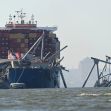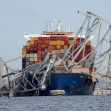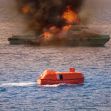The Labor Day fire on board a chartered diving boat off the coast of Santa Barbara is considered to be the worst maritime disaster in the history of the State of California. The survivors of the accident and the victims’ family members who choose to seek damages through litigation could now be prevented from doing so, due to the existence of a maritime law enacted in the mid-19th century. Learn more about the accident and the potential obstacle to recovery below.
Early morning fire leaves 34 dead
The tragic events on board the Conception began in the early hours of September 2, 2019. A group of 33 passengers organized by Worldwide Diving Adventures had chartered the boat for a dive trip that would take them near the Channel Islands off the Santa Barbara coast. The 33 passengers and one crew member were sleeping below deck, while four crew members and the captain slept on the ship’s deck. At some time after 3 am, a fire broke out on the ship; where that fire originated remains a subject of investigation. Those who were sleeping below deck appeared to have been blocked by the flames from making their way through either of the ship’s two escape hatches. The captain and crew attempted, but were unable, to help the passengers and crew member escape. In all, 34 people were killed, and one crew member who was forced to jump onto a lower deck suffered a broken leg.
Petition based on 1851 law could limit liability
Within days of the fire, lawyers for the owners of the Conception, Truth Aquatics, filed a petition in federal court to have their liability to the victims reduced to zero. The petition is based on the 1851 Limitation of Liability Act. This law allows for owners of a shipping vessel to avoid any financial liability for an accident when the liability would be greater than the value of the vessel after the accident. Owners may still face liability if the plaintiff can show that the owners had actual or constructive notice of the cause of the accident. The petition has been assigned to Central District of California Judge Percy Anderson for consideration.
This is far from the first time that the Limitation of Liability Act has played an important role in a newsworthy maritime disaster. The law was invoked upon the sinking of the Titanic, as well as after the Deep Water Horizon explosion and 2015 sinking of the El Faro cargo ship. Recently, the owner of a Missouri duck boat ride invoked the law when facing personal injury claims after 17 passengers died in an accident on one of its boats. The judge in that case did not immediately rule on whether the Limitation of Liability Act should apply in that case. Ripley Entertainment, the owner of the duck boat, has now reached out-of-court settlements resolving over half of the claims filed by victims’ family members. If the remaining claims are not settled and proceed to trial, only then will the judge in that case rule on the defendant’s petition.
Maritime legal experts say that the application of the law is by no means a foregone conclusion. In many highly-publicized cases where the loss of life is substantial, courts are reluctant to eliminate liability so early in the litigation process. Additionally, there may be evidence that the victims’ families could use to show that the owners had notice sufficient to eliminate protections granted by the 1851 law. Preliminary investigations have shown that there was no crew member awake and acting as a night watchman when the fire started. Ships of this size are required by federal law to assign a night watchman to monitor for just this type of emergency through the night, as well as to check on the ship’s equipment. Ongoing investigations have also uncovered evidence that the fire may have begun in the ship’s galley, where passengers and crew were charging their numerous electrical devices. Investigators are speculating about whether the fire may have begun as the result of the overloading of the boat’s electrical system, built long before the popularity of equipment that relied on rechargeable batteries. If the Conception’s owners knew that an excessive number of charging devices could overload the boat’s electrical system and result in a fire, they could face liability for the injuries.






